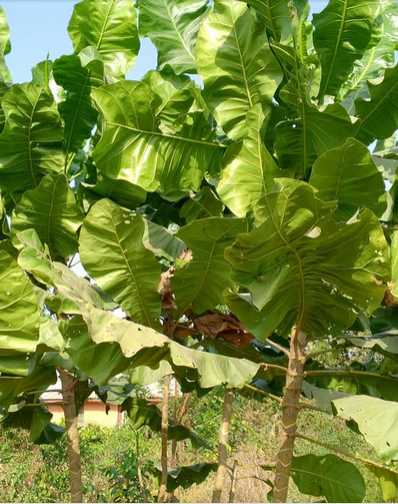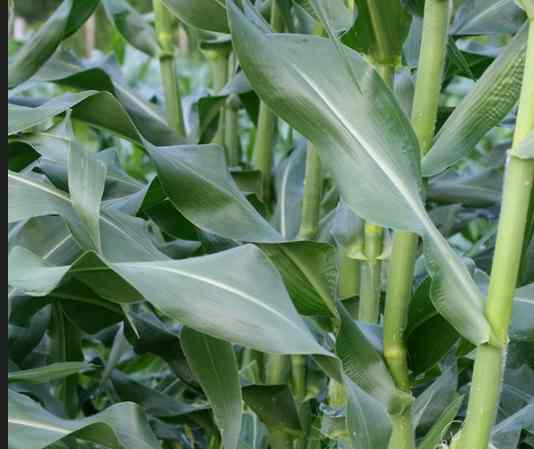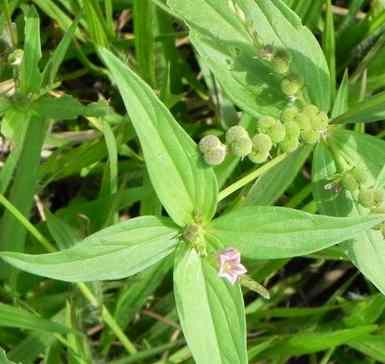
support@yorubalibrary.com
+2348073529208, 07038599574

Yoruba often say a particular during festival or ritual that "Odoodun ni Sapo n r'uwe" (Sapo tree springs forth new leaf on yearly basis). The Sapo in this statement is being referred to this leaf we'll be discussing today.
Ewe Sapo, also called Ewe Sapo Sapo in Yoruba, is a highly famous plant in traditional Yoruba medicine. Its botanical name is Anthocleista djalonensis. This plant is well-known for its strong medicinal power in treating fever, malaria, and stomach disorders, and it is also respected spiritually for breaking curses, cleansing bad energy, and attracting good fortune.
The name “Sapo” is associated with its bitter taste and strong healing potency, making it a trusted herb among Yoruba herbal practitioners.
Key Facts
Category: Leaf/Tree
Botanical Name: Anthocleista Djalonensis
Common Name: Nil
Yoruba name: Ewe Sapo or Ewe Sapo Sapo
Igbo Name: Nil
Hausa Name: Nil
Health Benefits
1. Treats Malaria and Typhoid Symptoms
The bitter decoction from Ewe Sapo is widely used in Yoruba medicine to treat malaria, fever, and typhoid-related symptoms.
2. Reduces High Fever and Cools Body Heat
It is boiled and taken as herbal tea to reduce excessive body heat and control persistent fevers.
3. Improves Digestive Health
Ewe Sapo aids digestion by relieving constipation, stomach cramps, and indigestion.
4. Cleanses the Blood and Detoxifies the Body
The leaf is known for its blood-cleansing properties, helping to remove harmful toxins.
5. Strengthens the Immune System
Regular use boosts the body’s natural defense against infections and chronic illnesses.
6. Postpartum Care for Women
It is used in herbal baths and decoctions to restore strength and promote fast recovery after childbirth.
Want to treat common ailments such as Malaria, Cough, Measles, Typhoid, Pile etc naturally without spending much? Grab a copy of Authentic Herbal Solutions: 15 Common Ailments & Their Natural Cures. A practical eBook recommended for everyone regardless of tribe, religion or association. Order below or Download sample here
AUTHENTIC HERBAL SOLUTION #4KOne Yoruba proverb says "Bí olóde ò kú, òde rè kì í wu Gbégi". Do you know that Gbégi is actually a leaf/plant? Get Yoruba Proverbs on Plants and Herbs, which is a collection of Untold Wisdoms Hidden in Leaf and plants comprising their Life Applications & Moral Teachings. Order below or download sample here
YORUBA PROVERBS ON PLANTS #4KSpiritual Use
1. Breaking Curses and Removing Stubborn Negative Energy
Ewe Sapo is one of the strongest spiritual cleansing herbs used to break generational curses and wash away bad luck.
2. Protection Against Witchcraft and Evil Attacks
It is used in herbal baths and home sprinkling rituals to repel witchcraft and spiritual arrows.
3. Attracting Blessings and Good Fortune
Some traditionalists combine Sapo with other sacred leaves in rituals to open doors of success, wealth, and favor.
4. Purification and Spiritual Cleansing
The bitter nature of the leaf symbolizes purity and spiritual renewal, making it suitable for spiritual baths before important ceremonies.
5. Sacrifices and Orisa Worship
Ewe Sapo is used in sacrifices and offerings to deities for protection, healing, and blessings.
Characteristics
⦁ Physical Appearance –
Ewe Sapo has large, broad, dark green leaves with a rough texture and strong veins.
⦁ Taste and Smell –
Very bitter taste with a strong herbal scent when crushed or boiled.
⦁ Growth Pattern –
Commonly found in forest areas and farmlands across Yoruba land.
Functions
⦁ Traditional Medicine –
Malaria treatment, blood cleansing, fever control, and postpartum care.
⦁ Spiritual Uses –
Protection, curse-breaking, prosperity attraction, and purification.
⦁ Cultural Significance –
Regarded as a powerful healing and cleansing plant in Yoruba tradition.
Conclusion
Ewe Sapo, also called Ewe Sapo Sapo (Anthocleista djalonensis), is a potent medicinal and spiritual leaf. It is used to treat malaria, cleanse the blood, and restore postpartum strength.
Have you heard of our Yoruba Herb Dictionary? This contains names of Yoruba Leaf, Roots, Barks, Characteristics, Properties & Identification with HD Pictures. Order below or download sample here
A-Z HERBS & LEAF DICTIONARY #4K
Know more about the Yoruba traditional uses and he…

Learn about Ewe Aran, a potent Yoruba medicinal le…